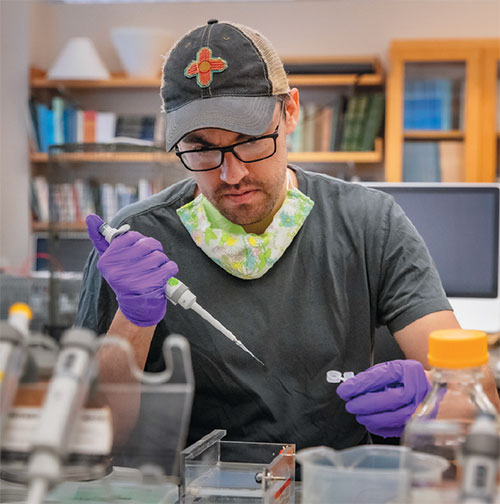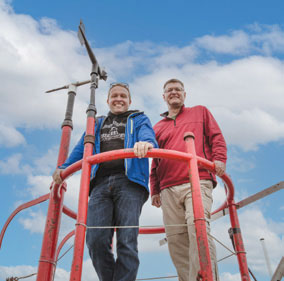Pulteney Street Survey
HWS Awarded $1M in NSF Grants

Grants from the National Science Foundation will support a collaborative research project that explores the ways cities shape animal evolution by studying eastern gray squirrels and an atmospheric science project that will result in the most expansive and comprehensive lake-effect snow database in existence for the Great Lakes. Together the grants total nearly $1 million.
Urban Evolution: As the lead institution for the urban evolution project, the Colleges received $426,452 of a total $1.5 million grant, with the remainder being split between collaborating researchers from Yale University and the State University of New York's College of Environmental Science and Forestry. HWS Associate Professor of Biology Brad Cosentino will serve as principal researcher for the project, which will also involve HWS student researchers.
Cosentino will explore how urbanization affects evolution by attempting to discover why melanic gray squirrels declined in rural forests but persist in cities. "We typically think of cities as places where nature and wildlife are absent, but some species do well in urban areas - and there's evidence that life in cities evolves very rapidly in response to dramatic environmental change," explains Cosentino.
Researchers will measure the degree to which melanism changes between cities and the surrounding forests using 10 cities in the U.S. and Canada. They will conduct visual surveys of coat color, perform live-trapping for genomic analyses and conduct some experimental work in Geneva, N.Y. and Syracuse, N.Y. to understand the mechanisms of urban evolution. The project will also engage K-12 students and thousands of citizen scientists in recording observations of squirrel coat colors and measuring evolution in schoolyard and backyard settings.

Lake-Effect Snow: The Colleges will receive $514,733 for a three-year atmospheric science project, that will support Professor of Geoscience Neil Laird (principal investigator), Associate Professor of Geoscience Nicholas Metz (co-principal investigator) and student researchers as they address lingering questions around the weather interactions that regularly impact lake-effect storms.
As Laird and Metz explain in their proposal, "Lake-effect snowstorms have large impacts on people and communities in the Great Lakes region, as well as areas beyond the typical lake-effect snowbelts, and there remain several unanswered scientific questions regarding multi-scale interactions that regularly affect these storms."
Featuring "a wide range of educational and training activities" for students, the project will explore the relationship between lake-effect storms and varying jetstream wind patterns, while "providing valuable insight into complex lake-effect weather systems that are difficult to forecast, as well as the snowfall produced by these storms."
